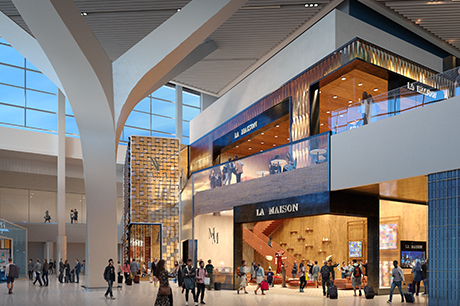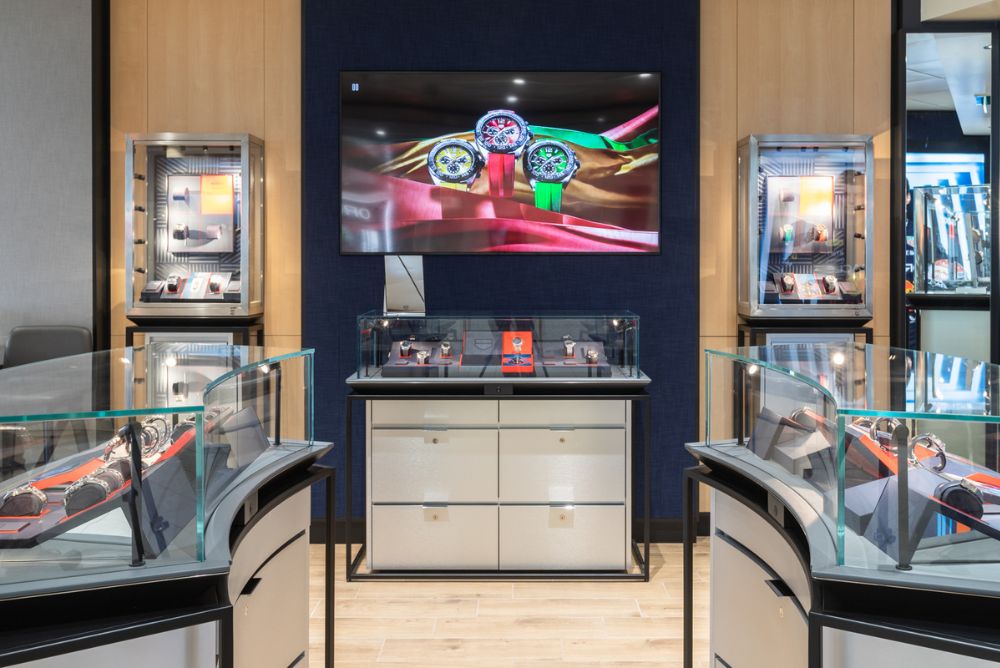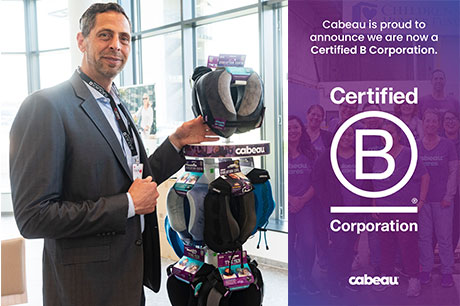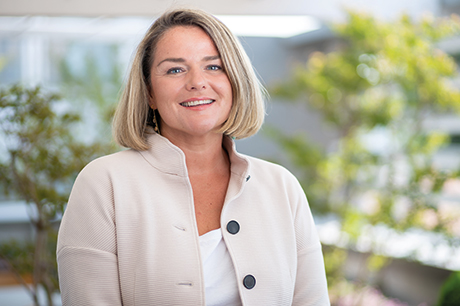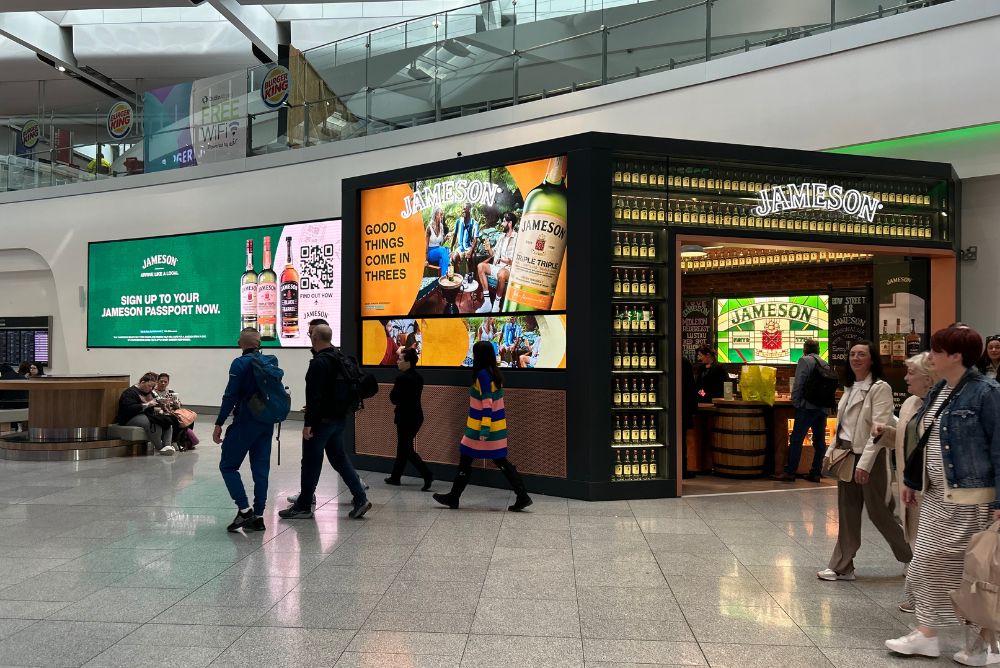Dufry’s Julián Díaz: ‘Life needs to normalise’
By Charlotte Turner |
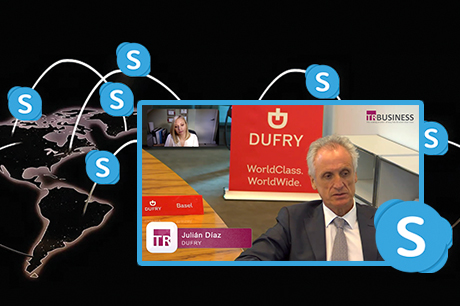 In an exclusive post-results video interview, Dufry CEO, Julián Díaz tells TRBusiness that he is more proud of how the company has conducted itself in the last couple of months – to collectively to bring about stability in a ‘zero sales’ scenario – than of anything else the company has achieved in the past 17 years.
In an exclusive post-results video interview, Dufry CEO, Julián Díaz tells TRBusiness that he is more proud of how the company has conducted itself in the last couple of months – to collectively to bring about stability in a ‘zero sales’ scenario – than of anything else the company has achieved in the past 17 years.
“I think what we have done in terms of protecting the company is similar in many ways to how we dealt with previous crises. With the initiatives we have implemented, Dufry today is a stronger company, more solid from a financial point of view, which enables us to create solid foundations for our future, should the situation not improve at the speed we expect.”
During a H1 2020 results call with analysts and the media, on Monday 3 August, the leading global travel retail operator reported a -62% decline in turnover to CHF 1,586.9 million/$1.73bn for the first half of 2020 as a result of unprecedented levels of disruption for its retail operations across its global network of stores, triggered by Covid-19.
“We have been able to create a sustainable company in a situation where we faced zero sales, more or less…Zero sales with close to 40,000 employees worldwide and more than 2,600 shops that were closed [in phases].
“It’s been a tremendous effort to change the company in two months, but it has been possible. It’s been possible because of the quality of the management team as well as the quality and the efforts of all its employees.
FROM 3% OF THE MARKET TO THE LARGEST COMPANY IN TRAVEL RETAIL
“I feel more proud of this than anything we have done in the history of the company. We have done a lot of things. We started in 2003, with around 3% of the market. We have now reached 20% of the market and in 17 years we have been able to turn around a company, that was in a very weak situation, into the largest company in travel retail.
“This is happening because of the employees and the management team of this company. And now when the situation is probably the most challenging in the history of the company, I feel more proud of what happened in the last two months than whatever happened in the last 17 years, because we have created a more solid company, financially and commercially.”
Of course, Díaz does concede that bringing about necessary, yet dramatic changes so rapidly – Dufry announced a company restructure in June, which will come into effect from 1 September – has meant some very difficult discussions and negotiations with its partners.
“Changes are obviously difficult. We want to improve the efficiency in which the company works and also to improve the structure of the company. During this time when I have been in contact with our partners, I have heard from them first of all surprise and secondly come the questions about how this company is going to work in the future.”
However, Díaz insists that in the case of most of its partners – particularly its global suppliers – they have been ‘satisfied’ by Dufry’s explanation.
PRESSURE TO REOPEN AT AIRPORTS?
In terms of Dufry’s other partners, airport authorities and landlords, TRBusiness asked if the company had felt under pressure to reopen stores where is simply was not feasible from a business point of view.
“No there is not one single place where we have felt this pressure. The opposite in fact. We have in each case been able to justify why we should reopen – all depending on the number of passengers, depending on the rent we pay and the operational costs in each location – and we have reopened more space than we initially expected.
“During this time, I have seen partnership become more than just a word, but now an action.”
IMPORTANT LESSONS LEARNED ABOUT STAKEHOLDER COLLABORATION
These comments are in stark contrast to those that Díaz has shared very publicly in the past about the relationship and collaboration between industry stakeholders. He has been critical in the last few years about the lack of collaboration between airports, airlines, landlords and retailers, claiming inflexibility and not enough shared risk in terms of concession contracts. TRBusiness asked Díaz if he believes this new scenario – where partnership is ‘not just a word, but an action’ – is here to stay.
“In the short-term I think so. I think we are all looking at how the business – not just the travel retail business, but the travel industry as a whole – can survive and become more sustainable. I think our shared views of how to bring this about is one of the most important [developments] that I have ever witnessed in travel retail. It’s the first time that we have been able to share views about how we create a sustainable business especially during the worst case scenarios. This is one of the most important lessons that we have learned [together] during this crisis.”
In conversations filmed with members of the travel retail community over the last four months for the ‘Adapt & Survive’ video series, TRBusiness has listened intently to the frustrations and anxieties of our interviewees as they generously open up about their plans for the future of their respective businesses in travel retail.
More specifically, the supplier fraternity have complained about the fact that their direct retailer contacts from numerous firms have fallen silent during this period, leaving them in a limbo situation when it comes to orders and payments. TRBusiness asked Dufry how it is communicating with its supplier partners to reassure them at this time.

The importance of stakeholder collaboration: Pictured here is Julián Díaz (left) in deep conversation with Heathrow Airport’s CEO, John Holland-Kaye (centre) and WDF’s Fred Creighton at the opening of the LHR T3 flagship in 2018.
SUPPLIERS SPEAK OUT
“I think that during the primary reopening phase of our shops there has been good examples of collaboration with our suppliers in general. Obviously, there are different types of suppliers, different sizes, global, local etc. Talking about the global situation with suppliers I would say that in a very short period of time we have been able to structure sustainable relationships.
“I am pleased to say that we are ready for the restart of operations of all our activities worldwide. As you know, by the end of August, we are going to have in operation around 70% of the sales capacity of the company and this has required a significant negotiation process and a collaboration with suppliers…I would say especially with global suppliers we have been able to reach positive conclusions and agreements.”

“We cannot keep going in circles where the only thing we are talking about is the challenges we have or the opportunities that we are losing,” says Julián Díaz.
It is of course in the interest of all parties that communication channels remain open; especially for Dufry if it is to resume business at 50% of its stores (1,250) by the end of August. Without the right brands, assortments and promotions Dufry will not be able to entice the small number of travellers into stores.
Passengers also need to be reassured that travel retail environments are safe to re-enter. As traveller confidence increases, spend will surely follow, insists Díaz.
‘WE CANNOT KEEP GOING IN CIRCLES’
“I believe we need to normalise life as soon as possible,” says Díaz. “We cannot keep going in circles where the only thing we are talking about is the challenges we have or the opportunities that we are losing.
“The opportunities are there and we need to implement, as much as possible, initiatives, especially in travel retail, that allow us all to pursue a normal life and for me normal life means shops re-opening and receiving customers.
“I have been travelling a lot from the moment that flights re-initiated in Europe to many countries to see first-hand how the operations are reopening and what the situation is regarding our customers.
“I can tell you one thing…customers are behaving exactly the same as before. [According to our online survey] 80% of Dufry’s customers have said that they are not going to change their behaviour when they are in airport, especially when it comes to travel retail; duty free and duty paid.
“There is obviously a lot of bad news to digest right now, the most critical one being the low number of passengers, but I think and hope as soon as the customers start travelling again and they feel that the situation is gradually normalising, the passengers will come back. This is a fact, not a guess.”
For more from Díaz on Brexit scenarios, the recovery in South America, Dufry’s cruise business and the resilience of particular duty free categories during the pandemic, scroll up the page to watch the full-length video interview.
Details emerge of JFK T1 commercial programme and duty free tender
Qualified travel retail operators are being invited to participate in a request for proposals...
Mondelez WTR launches Win a Diamond pop-up with Lagardère at CDG
Mondelez World Travel Retail (WTR) has unveiled an enhanced iteration of its Win a Diamond...
JEDCO launches multi-category tenders at KAIA T1
Jeddah Airports Company (JEDCO KSA) has issued a request for proposals for several...
-

-

-
 International,
International,JEDCO launches multi-category tenders at KAIA T1

In the Magazine
TRBusiness Magazine is free to access. Read the latest issue now.

 Trbusiness. The travel retail Trbusiness. The magazine for global retail and duty free professionals.
Trbusiness. The travel retail Trbusiness. The magazine for global retail and duty free professionals.

